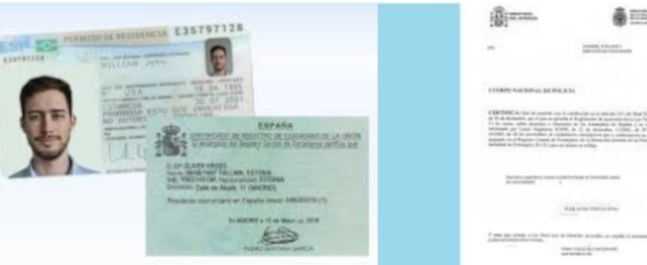
Residency permits and NIE
In Spain, there are two main types of residence permits: EU residence and non-EU residence, and both are separate from the NIE (Foreigner Identification Number).
EU Residence Permits (for citizens of EU/EEA countries or their family members) are generally easier to obtain. They usually require only a few documents and the process can often be completed within a week.
Non-EU Residence Permits, on the other hand, are more complex. They require more documentation, often including original documents legalized or apostilled in the country of origin. In most cases, this type of residence must be applied for from the applicant’s home country, before arriving in Spain.
It’s crucial that applicants clearly understand the type of residence permit they need, based on their intentions in Spain (study, work, investment, family reunification, etc.). Furthermore, it is essential to check in advance whether a visa is required to obtain the intended residence permit.
For example, British citizens (post-Brexit) need to apply for the correct visa at the Spanish consulate in their country of residence.
These visas cannot be obtained once already in Spain. We have a guidance available for British citizens who need to obtain their residency permit In both types of residence processes, the applicant will be issued a NIE number.
The NIE is mandatory for many legal and financial activities in Spain, such as paying taxes, purchasing property, or registering a vehicle. It is issued on an A4 sheet and does not grant residency status on its own.
NIE fiscal: we can also help you obtain your Spanish tax identification number (NIE), which is required
not only for paying taxes but also for signing any public deeds before a Notary in Spain. This includes
important transactions such as purchasing a property, inheritance proceedings, and more. This type of tax
NIE can be obtained on the same day it is requested and does not require a prior appointment.
